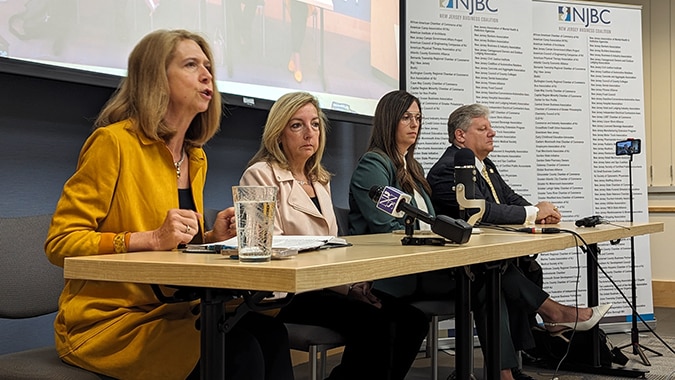 NJBIA President and CEO Michele Siekerka is urging policymakers to ease off on the litany of costly mandates and revenue raisers under consideration during this critical budget season.
NJBIA President and CEO Michele Siekerka is urging policymakers to ease off on the litany of costly mandates and revenue raisers under consideration during this critical budget season.
In an op-ed in today’s Bergen Record, she observes that Gov. Phil Murphy has proposed increasing taxes by $1.7 billion in the upcoming budget even as he prepares to sign legislation that will likely increase energy costs. This is on top of new laws ordering businesses to provide paid sick leave for all of their employees and increasing their liability in pay equity lawsuits.
“The cumulative economic impact of new laws and proposed policies is hurting our small businesses,” she wrote. “These are our job creators who employ half of New Jersey’s private workforce and who are already challenged by the high cost of doing business in the state.”
The op-ed identified a proposed increase in the millionaire’s tax as being particularly hard on small businesses.
“The millionaires tax increase would directly impact small businesses— many of them sole proprietorships, partnerships, LLCs and S corporations— that flow their income taxes through personal returns,” Siekerka stated. “It would impact nearly 5,000 businesses who account for more than $1 billion in Adjusted Gross Income. It would also impact nearly 20,000 individuals who account for more than $54 billion in AGI in our state.”
She asked legislators to pause on legislation impacting business costs until Senate President Stephen Sweeney’s State Tax Policy Working Group and Governor Murphy’s Economic Growth Council complete their work.
“New Jersey taxpayers are on the brink, having been willing to pay a premium for our tremendous assets. But with super premium costs now being proposed, many taxpayers will be pushed over the edge, especially New Jersey’s small businesses,” Siekerka stated.
“That’s why NJBIA continues to call for comprehensive tax and regulatory reform; prioritizing the need to fix our structural deficits in our economy first and foremost, such as our public pension and health benefits costs, and school funding. The state must adopt long-term sustainable solutions rather than attempt to tax our way out of our challenges.”

